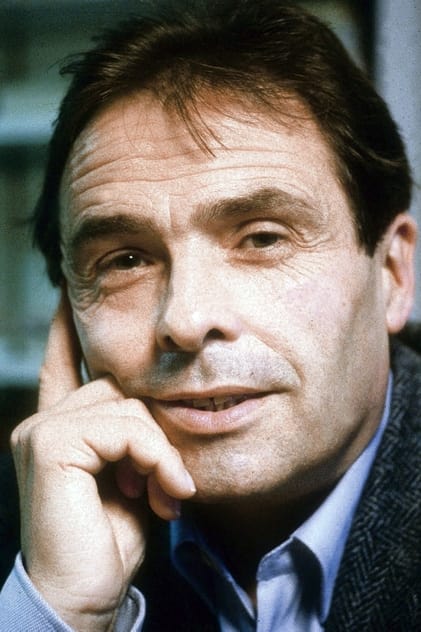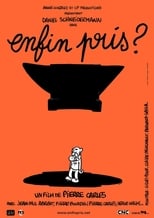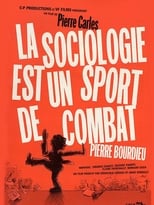

Pierre Bourdieu
Born: August 1, 1930
Died: January 23, 2002
in Denguin, Pyrénées-Atlantiques, France
Died: January 23, 2002
in Denguin, Pyrénées-Atlantiques, France
Pierre Bourdieu (1 August 1930 – 23 January 2002) was a French sociologist and public intellectual. Bourdieu's contributions to the sociology of education, the theory of sociology, and sociology of aesthetics have achieved wide influence in several related academic fields (e.g. anthropology, media and cultural studies, education, popular culture, and the arts). During his academic career he was primarily associated with the School for Advanced Studies in the Social Sciences in Paris and the Collège de France.
Bourdieu's work was primarily concerned with the dynamics of power in society, especially the diverse and subtle ways in which power is transferred and social order is maintained within and across generations. In conscious opposition to the idealist tradition of much of Western philosophy, his work often emphasized the corporeal nature of social life and stressed the role of practice and embodiment in social dynamics. Building upon and criticizing the theories of Karl Marx, Sigmund Freud, Max Weber, Émile Durkheim, Claude Lévi-Strauss, Erwin Panofsky and Marcel Mauss among others, his research pioneered novel investigative frameworks and methods, and introduced such influential concepts as cultural, social, and symbolic forms of capital (as opposed to traditional economic forms of capital), the cultural reproduction, the habitus, the field or location, and symbolic violence. Another notable influence on Bourdieu was Blaise Pascal, after whom Bourdieu titled his Pascalian Meditations.
Bourdieu was a prolific author, producing hundreds of articles and three dozen books, nearly all of which are now available in English. His best-known book is Distinction: A Social Critique of the Judgment of Taste (1979), in which he argues that judgments of taste are related to social position, or more precisely, are themselves acts of social positioning. The argument is put forward by an original combination of social theory and data from quantitative surveys, photographs and interviews, in an attempt to reconcile difficulties such as how to understand the subject within objective structures. In the process, Bourdieu attempts to reconcile the influences of both external social structures and subjective experience on the individual. The book was named "the sixth most important sociological work of the twentieth century" by the International Sociological Association (ISA).
Pierre Bourdieu's work emphasized how social classes, especially the ruling and intellectual classes, preserve their social privileges across generations despite the myth that contemporary post-industrial society boasts equality of opportunity and high social mobility, achieved through formal education.
Pierre Bourdieu was born in Denguin (Pyrénées-Atlantiques), in southern France, to a postal worker and his wife. The household spoke Béarnese, a Gascon dialect. In 1962, Bourdieu married Marie-Claire Brizard, and the couple would go on to have three sons, Jérôme, Emmanuel, and Laurent. ...
Source: Article "Pierre Bourdieu" from Wikipedia in English, licensed under CC-BY-SA 3.0.
Bourdieu's work was primarily concerned with the dynamics of power in society, especially the diverse and subtle ways in which power is transferred and social order is maintained within and across generations. In conscious opposition to the idealist tradition of much of Western philosophy, his work often emphasized the corporeal nature of social life and stressed the role of practice and embodiment in social dynamics. Building upon and criticizing the theories of Karl Marx, Sigmund Freud, Max Weber, Émile Durkheim, Claude Lévi-Strauss, Erwin Panofsky and Marcel Mauss among others, his research pioneered novel investigative frameworks and methods, and introduced such influential concepts as cultural, social, and symbolic forms of capital (as opposed to traditional economic forms of capital), the cultural reproduction, the habitus, the field or location, and symbolic violence. Another notable influence on Bourdieu was Blaise Pascal, after whom Bourdieu titled his Pascalian Meditations.
Bourdieu was a prolific author, producing hundreds of articles and three dozen books, nearly all of which are now available in English. His best-known book is Distinction: A Social Critique of the Judgment of Taste (1979), in which he argues that judgments of taste are related to social position, or more precisely, are themselves acts of social positioning. The argument is put forward by an original combination of social theory and data from quantitative surveys, photographs and interviews, in an attempt to reconcile difficulties such as how to understand the subject within objective structures. In the process, Bourdieu attempts to reconcile the influences of both external social structures and subjective experience on the individual. The book was named "the sixth most important sociological work of the twentieth century" by the International Sociological Association (ISA).
Pierre Bourdieu's work emphasized how social classes, especially the ruling and intellectual classes, preserve their social privileges across generations despite the myth that contemporary post-industrial society boasts equality of opportunity and high social mobility, achieved through formal education.
Pierre Bourdieu was born in Denguin (Pyrénées-Atlantiques), in southern France, to a postal worker and his wife. The household spoke Béarnese, a Gascon dialect. In 1962, Bourdieu married Marie-Claire Brizard, and the couple would go on to have three sons, Jérôme, Emmanuel, and Laurent. ...
Source: Article "Pierre Bourdieu" from Wikipedia in English, licensed under CC-BY-SA 3.0.
Movies for Pierre Bourdieu...

Title: Enfin pris ?
Character: Self
Released: October 2, 2002
Type: Movie
Pierre Carles, the dispenser of justice seen in “Pas vu, pas pris,” is back in the saddle. After attacking French television star reporters, his new target is television critics as represented by Daniel Schneidermann, host of the "Arrêt sur images" show. “Enfin pris ?” analyzes censure at work in television. It is also a thought-provoking look at how power changes people and the intimate forces between ambition and loyalty. A cruel, biting comedy from which no one really comes out unscathed.


Title: Sociology Is a Martial Art
Character: Himself
Released: May 2, 2001
Type: Movie
"I often say sociology is a martial art, a means of self-defence. Basically, you use it to defend yourself, without having the right to use it for unfair attacks." (Pierre Bourdieu) The world has witnesses who speak out loud what others keep to themselves. They are neither gurus, nor masters, but those who consider that the city and the world can be thought out. The sociologist, Pierre Bourdieu is one such witness." Over a three- year period, Pierre Carles' camera followed him through different situations: a short conversation with Günter Grass, a lively conference with the inhabitants of a working-class suburb, his relations with his students and colleagues and his plea that sociology be part of the life of the city. His thinking has a sort of familiarity, which means it is always within our reach. It is the thinking of a French intellectual who has chosen to think his times.


Title: Le champ journalistique et la télévision
Character: Himself
Released: January 1, 1997
Type: Movie


Title: Arrêt sur images : le traitement par la télévison de la grêve de 1995
Character: Self
Released: January 20, 1996
Type: Movie


Title: Apostrophes
Character: Self
Released: January 10, 1975
Type: TV
Apostrophes was a live, weekly, literary, prime-time, talk show on French television created and hosted by Bernard Pivot. It ran for fifteen years (724 episodes) from January 10, 1975, to June 22, 1990, and was one of the most watched shows on French television (around 6 million regular viewers). It was broadcast on Friday nights on the channel France 2 (which was called "Antenne 2" from 1975 to 1992). The hourlong show was devoted to books, authors and literature. The format varied between one-on-one interviews with a single author and open discussions between four or five authors.
